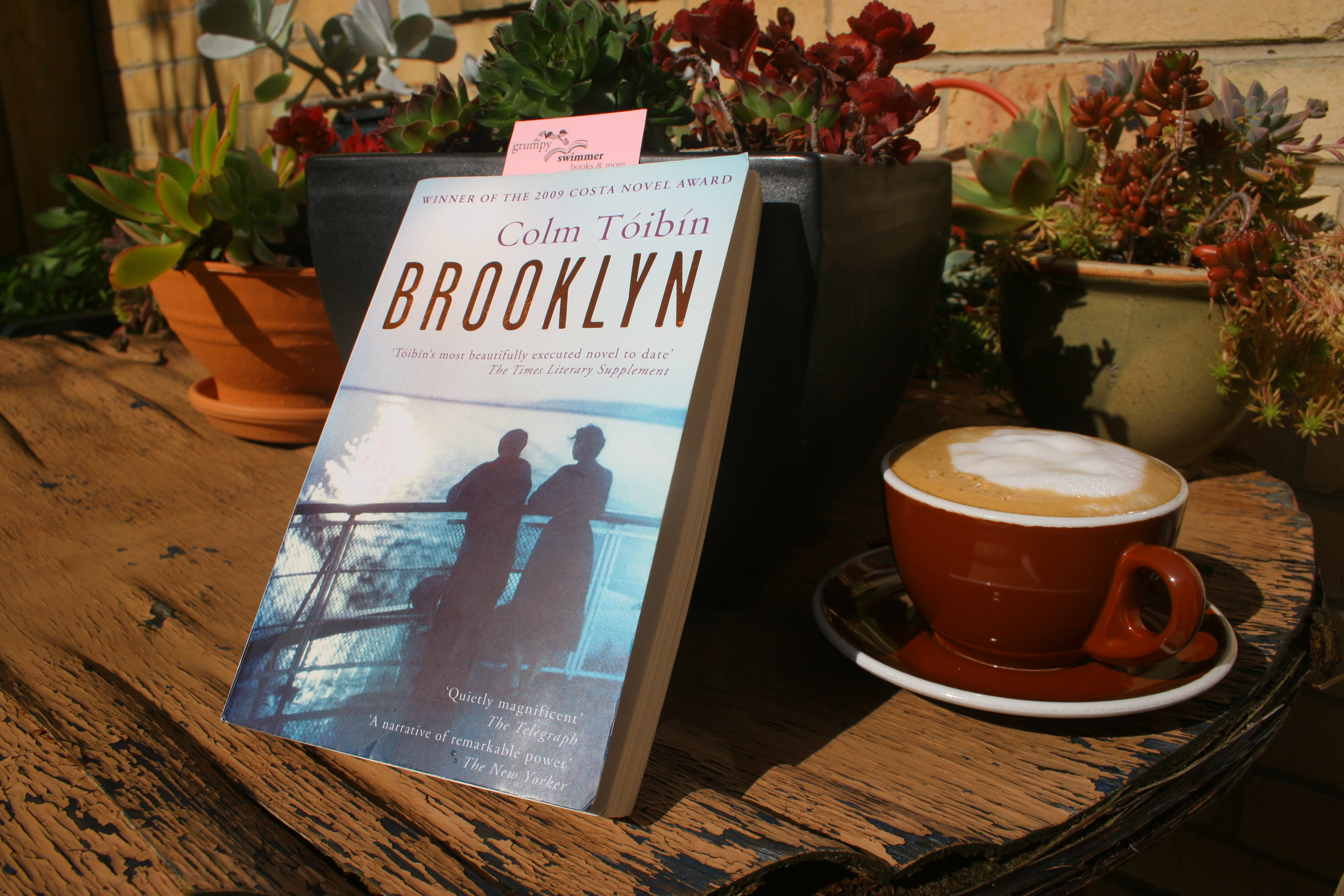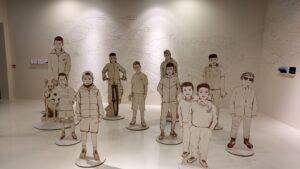Where does our desire to tell stories come from? What exactly is it that we are trying to articulate and what fuels the conviction that there is an audience for the tales we tell? It’s surely not just a by-product of ego, a desire to impose ourselves on the world, an inner compulsion towards self-assertion. That would make the starting point rather thin and facile. I prefer to think that it goes deeper, recalling our more primitive beginnings.
There was a time when the inner and outer lives of a community were deeply mysterious and magical and the role of interpretation and explanation fell not to chieftains or sovereigns but to a figure that somehow managed to dwell both within and without the tribe. Both ‘of’ and ‘other’. This figure was the storyteller. The poet. The bard. To this person fell the shamanistic duty of making sense of the universe. The interpreter of dreams, the voice of the unknown and the unseen, the painter of the dark, they used their formidable expressive skills to transport those seeking a broader frame of reference in which to place their world. In today’s world of professional theatre this person is known as the ‘triple threat’ – they act, sing and dance! But the artiste of old was no mere star of musical theatre, bedazzling rapt spectators with fancy footwork and trilling vibrato. The original storyteller took on the aura of a seer, bridging the gap between the known and the unknowable. They made sense of the insensible and as such were the embodiment of a greater power than that possessed by the less articulate and the less imaginative. Can a storyteller still be in possession of such power?
In our modern world that is so overwhelmed and saturated with information and opinion and interpretation why do we still feel the need to produce and consume stories? If mice and slugs and elephants had the same faculties available to them that we enjoy would they write and sculpt and sing and paint and produce their own multifaceted oeuvres? I suspect they would but maybe I have watched too many Disney movies in my life and am overly susceptible to the dubious charms of anthropomorphism. For the time being it is humans alone who wield the sword of self-awareness (no guarantor of insight) and it is in each person’s gift to decide how and when to unsheathe what can be both a weapon of rarefied finesse and unequivocal crudeness. Our fascination with every point on the scale resides in the same impulses that lay in the hearts and minds of our cave-dwelling ancestors. It is a quest for understanding and for connection. Simply put – who am I and where do I belong?
The richest stories of old are the myths which survive to this day, still captivating and fascinating listeners, readers and spectators of all ages. Irish, English, Norse, Greek and Roman, Aboriginal, African, Asian,Native and South American – old and ancient cultures that have furnished us with a tremendous wealth of mythology and storytelling. Stories that have laid the foundation for the way we understand ourselves today. We are our own myth-makers. We are the tellers of our own stories and have a knack of placing ourselves at the heart of the drama. Each one of of us is Homer’s Odysseus, journeying, probing, questing but perhaps ultimately compelled to return to Penelope, to that place of safety, familiarity and love. I am not being literal here, I am not saying we are all the male hero archetype who dutifully returns home to the stoic wife after his manly adventures. My suggestion is that on a profound, primal, ancient level, we are all borne on the same unstated dynamic that is best described as the journey and the return.
We set out on our voyages understanding, or maybe just suspecting, that the journey and its concomitant adventures and challenges, will not be indefinite. There will be an end. There will be a settling. And there will be a return. The return becomes whatever the traveler determines to be home. And home is the place of belonging. Home can also be the opposite of that, highlighting the sense of not belonging, the sense of otherness. Home then, embodies a strange paradox in that it can be understood as both happy assimilation into place and tribe as well as being one’s concept of defiance, individuality and difference. From this interpretation we can see how identity is closely connected to home. Are we a product of, or a reaction to where we are from? And what happens if you are dispossessed of a birthright as indelible as belonging? How do you keep your identity if you have no place to which you can return?
Further to that and with due reference to TV’s Sesame Street, I wish to announce that today’s blog is being brought to you by the novel Brooklyn by Colm Toibin and the film Shame by Steve McQueen. Two radically different stories, I found each compelling and provocative. Toibin’s novel is a beautifully written story of Irish emigration in the 1950s that is told in a deceptively unadorned way. It left me open-mouthed in admiration of his delicate touch as a writer somehow presenting prose simultaneously wide open and tight as a drum, its emotional impact quietly devastating. Shame is a completely different beast that depicts in the most unapologetic terms a contemporary New Yorker’s eye-popping struggle to negotiate his insatiable sex addiction, a symptom, it becomes clear, of something murky in his family history that has rendered both he and his sister incapable of sustaining functional adulthood. Home is a place to which they have no desire to return. As portrayed by German-born Irish actor Michael Fassbender, the central character’s conflict is deeply affecting as he seeks connection through joyless physical sublimation only to emerge haunted and self-hating on the other side. Brutal, poignant stuff.
As these two stories stayed with me I found their common thread continued to resonate. Shame‘s Brandon and Brooklyn‘s Eilis are both voyagers on their own odysseys, trying desperately to locate themselves in a place that is both physical and emotional, that is both forged and inherited. In their efforts to identify themselves are they not holding up a mirror to us all and asking if we can answer that question for ourselves?
We continue to tell stories to find ourselves. To not lose ourselves. To bolster our convictions of who we are and to identify which stage of the odyssey we have reached. In our stories we seek connection. In the tales we tell we are offering our contribution to a greater story that encompasses all time, all history, all human experience. By offering to share our story we are tacitly accepting that we do belong and that we are asking the same questions and seeking the same truths as everybody else.
Who are you? Where do you belong?





Hey Dara,
Could hear your Irish accent reading this to me as I read!
Think I’ll be choosing ‘Brooklyn” for my next book club book to read.
Thanks for the inspirational thoughts. Martsxxx
Thanks Marts. Enjoy the book when you get your hands on it. xx
Awesome writing; a joy to read!
Your observation is a good one. The only stories I tell are about my journey. Whether the stories are factual or made up, they are always accounts of what I have seen and consider worthwhile pointers.
But my journey is that of homelessness. Whenever I see a home on the horizon, I turn around and walk the other way. I suspect it is the fear of home and death being the same place, eternal boredom being the intermediary. So I continue erring in search not of home, but a fleeting self that hides its invisibility behind an actors mask. The mask changes and sends me towards new diversions.
Great post – thanks for a good start to the week.
Thanks GF, glad you enjoyed it.
The donning of masks can be a very liberating game and one which I believe we all play to some extent. There are very few (if any) people in front of whom we are willing to be fully naked.
If home started to symbolise death for me I think I’d be walking in the other direction too!
Great post! The stories that I tell are based on my own life – I have tried to be a creative writer but, well, I’m simply not creative enough!
Do you not view your blog as reflecting your creativity? It looks like there’s plenty of evidence there to me.
That’s a nice way of looking at it!
While I read this, I was thinking of Odysseus the adventurer, the person who inspires stories, and the storyteller. I’ve always imagined the storyteller among the cave dwellers as lame, or having some other kind of health problem that compelled him/her to endlessly look at the moving shadows on the wall. Meanwhile, most of the hunters are forgotten and the legends and the writing on the wall remains. – Thanks for an inspiring read!
That’s a nice idea about the storyteller being lame or somehow impeded – like James Stewart in Rear Window, his imagination running riot!
Glad you enjoyed the post.
“How do you keep your identity if you have no place to which you can return?” Ah, yes. This is an extremely loaded question for me. Without putting it into such succinct terms, it’s a theme I grapple with on many levels – literary & life. A lovely post. (And I’ve been a fan of Toibin for years but have not yet read Brooklyn.)
Thanks David. I think disconnectedness and the absence of ‘place’ is a very real phenomenon in this chaotic age. Our rush towards ever-increasing self-obsession doesn’t help.
Enjoy Brooklyn when you get round to it.
Nice comparison of the two stories. You might have missed this one (sorry if you hadn’t):
http://aholisticjourney.wordpress.com/2013/08/05/the-writing-process-ii-why-we-read-part-4/
WHY WE READ (and consequently, keep telling stories).
Thanks HW, I had read your Why We Read piece and did enjoy it. Nice thoughts and insights.
I read this today on Interesting Literature’s blog where a guest post asked whether computer games are literature – “Literature, meandering through twists and turns of plot and fate, turns the unforeseen, which is so often frustrating in real life, into the enjoyable, because we know that all will be resolved in the end. This is why we read.”
Check out post and blog here:
http://interestingliterature.wordpress.com/2013/08/20/guest-blog-are-video-games-literature/
He makes a plausible case for investigating the games in that light. Funny you send me this bc I’ve been working on the finale to the Writing Process that I’ve been trying and trying to get out, in the fight for time — it will be calling upon artists to help answer a most fundamental question about art.
In my comment on his post, I shared with him your link, explaining you’d referred me.
I enjoyed “Brooklyn.”
I grew up in Canada and have lived in the States since 1988. I enjoy it but return to Canada several times every year; fewer visits, and I feel (literally) de-racinated.
In the bookstores and shops there I find the culture and foods I won’t find in NY. I share a sort of history with my oldest friends there I will never have with people here I met after the age of 30. So I am many people, the “me” of pre-ex-pat life and the changed/toughened me of NY career ambition. I need to keep those sides in balance, even if the former impedes the latter.
The idea of deracination is something that I was reflecting on very recently as I contemplated the ‘me’ that resides here in Melbourne. I don’t satisfy certain Irish stereotypes especially the drinking, Blarney-spouting ones so even at home I sometimes felt quite different but the distancing effect that happens over time can be quite unnerving, like waking up in a boat that has drifted out to sea, all familiar landmarks vanished from the horizon.
We begin again. Each day bringing new opportunities and challenges for our ‘self-actualisation’. It’s a fight that happens on different battlefronts depending on where we feel needs most urgent attention.
Thanks for the lovely pingback on ‘Re-visiting your past’, I am very pleased to be included in such a reflective post.
I think the pain of immigration can be mitigated by the chance — rare at “home” to reinvent and try on new identities that would be unlikely or impossible if we had stayed our whole lives there.
[…] Here’s blogger Dara Clear, eloquent as always — who traded his native Ireland for Australia: […]
Reblogged this on michaela wanders and commented:
“And home is the place of belonging. Home can also be the opposite of that, highlighting the sense of not belonging, the sense of otherness. Home then, embodies a strange paradox in that it can be understood as both happy assimilation into place and tribe as well as being one’s concept of defiance, individuality and difference. From this interpretation we can see how identity is closely connected to home. Are we a product of, or a reaction to where we are from? And what happens if you are dispossessed of a birthright as indelible as belonging? How do you keep your identity if you have no place to which you can return?”
How beautiful. For those of you traveling, how do you define home? From whence does our identity come?
Dara, your reflection on home and journeys struck me. I tend to define myself in negatives as well, and have found that moving places and spaces have been one of the most formational aspects of my identity. I’ve reblogged you for my readers to think about home and identity!
Thanks Michaela and nice to meet you. Home is such a dominant reference point for us all, something we seem to both crave and reject at times. I’m glad my post struck a chord and flattered you considered it worth reblogging – thanks for the compliment.
[…] http://theclearout.com/2013/08/19/tell-me-about-it/ […]
This post resonates with me so much, Dara. I haven’t blogged about it yet, but my conflicted feelings of identity lately have all but stifled my creative juices (even blogging has slowed down). Lately, I have wanted to leave Los Angeles altogether and start fresh somewhere else. But then I wonder what would be different if I lived elsewhere, or would I simply take all my issues with me and have writer’s block at the next destination too. We shall see.
Thank you for such meaningful, thought-provoking posts.
Thanks for the generous feedback. Identity and place are so connected but perhaps we make our definition of them too rigid which makes their changing seem almost a betrayal.
Maybe having the confidence and patience to try and be more flexible would help. Every moment is an opportunity to make a new choice. That in itself is daunting! But no matter what choice we make or where we base ourselves, our crap comes with us until we address it directly. That’s my belief, anyway.
[…] a college student in Ohio, Kathleen, a teacher in Germany, Dara a new father in Australia — his blog is terrific. 3Bones has written about the battle with cancer his wife faces in British Columbia. […]
[…] very indulgent and quoting myself in that opening paragraph. It was a reflection I included in a post on storytelling that appeared here two years’ ago. Having been recently back in Ireland for the first time in […]
[…] – How to Cry for Joy could be part of a series. A couple of posts on living abroad could be How to Know You’re Homesick Part 1 and […]